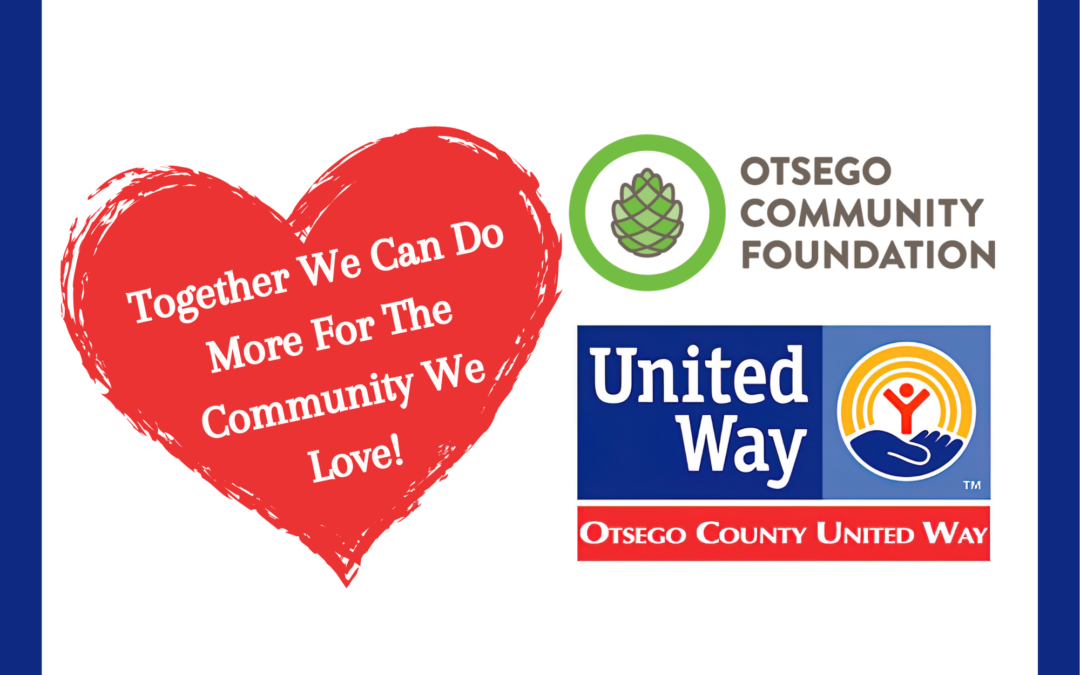The Otsego Community Foundation (OCF) and Otsego County United Way (OCUW) have worked closely together for the past two years in response to the COVID-19 pandemic. Since the tornado that impacted our community on May 20, 2022, our efforts have united even more. For both pandemic and tornado relief, OCF has managed charitable funds focused on building resources and awarding grants for the causes and OCUW has ensured individuals have access to essentials for survival. In addition to their individual roles, both organizations have teamed up to provide community leadership, including researching, exploring, and implementing solutions.
Since the tornado, big-hearted individuals have been eager to give to our community. Generous donors ask, “To whom should I give?” The answer is either. Regardless of where a gift goes, to one organization or the other, all can rest assured that it will go toward making a positive impact on the community and improving the lives of those affected by the tornado.
How we differ from our peer Foundations and United Ways
Otsego County residents usually do not equate our county with the word “desert”. We think of chilly winters with 100+ inches of snow, and our lush green summers with lake access within 5 miles. In this sense, desert refers to the challenges our community faces when overcoming the void of resources in our rural community.
OCUW
United Ways are uniquely positioned to provide on-the-ground disaster response, including raising funds; providing resources like food, water, and shelter; mobilizing volunteers; and engaging local partners to ensure community stability. However, the tornado and pandemic highlighted capacity deficits our communities’ rural nonprofits face. Namely lack of continuity of service when organizations are charged to aid multiple counties that span over hundreds of miles.
When the shutdown first happened, OCUW stepped in to ensure basic needs were met. As the pandemic lingered, it became apparent there were no other organizations with the ability to pick up the stop-gap support OCUW was providing to vulnerable individuals during the “on-the-ground” (first couple of months of lockdown) response. This problem is repeating itself again with the tornado. There is a light at the end of the tunnel because the Michigan Disaster Response and Recovery program, with funding from the OCF, will be providing case managers to assist tornado victims to foster the capabilities of our county’s human service agencies.
When these crises subside, 37% of Otsego County residents are still ALICE (asset limited, income constrained, employed) and our country is facing a recession, what organization will step in the way OCUW has been serving clients? The Department of Health of Human Services, the Refuge, and Salvation Army do magnificent work in their specific niche, yet, they have difficulties with capacity, too.
Most United Ways do not offer direct service in the way that ours does. But the pressing question is if they don’t, who will? These tumultuous times have challenged us all to do more with less. OCUW abilities are continually reevaluated to respond to priority issues; with a small staff, they work diligently to nurture financial stability, strategic goals, and organizational strength.
Foundation desert
Community foundations carry out their missions through three pillars:
- Building endowments – permanent charitable funds established by donors for a particular local cause
- Awarding grants – based on the fund’s purpose, distributions are made to community organizations for the particular cause
- Convening leaders – inclusively uniting people, institutions, and resources throughout the community, and producing significant, widely shared, and lasting results
It is complex work balancing donor wishes, community needs, investment results, and grantmaking. A sound business model is imperative, and while the OCF has made significant progress in recent years, it hasn’t been an easy road. When you look at the inception of community foundations across the state, the majority were started with a gift from a private foundation that saw the value in establishing such an organization. The OCF started with volunteers and a desire to help the community, but without financial resources. In addition, many private foundations provide continuous support for the good work of community foundations in their geographic areas as well as partner with them on local initiatives, which has not been the case with the OCF. Expected to be a platform of support for the nonprofit community, the absence of seed money to get started and the lack of other funders in the area has resulted in operational challenges for the organization. There are community foundations serving all 82 counties in Michigan and the Otsego Community Foundation remains one of the smallest, which creates gaps.
With both the pandemic and now the tornado impacting the community, those gaps are very visible. In 2020, neighboring communities had established endowed funds to meet urgent needs. They were able to immediately grant from those funds to assist nonprofits in serving basic needs. With no established fund, the OCF had to establish the COVID-19 fund, actively fundraise and then award grants. Through this experience, the OCF was determined to grow flexible endowed funds that could be used not only for emergencies but to strengthen as well as sustain the nonprofit sector. And just like that, a tornado strikes, and once again without an established endowed fund the OCF has found themselves actively fundraising to ensure organizations like the United Way, Refuge, and Habitat for Humanity have the resources to deliver much-needed services to survivors.
OCF and OCUW differences and similarities
The Otsego Community Foundation and the Otsego County United Way differ in many aspects, but they both serve the community in distinctive but equally important ways. Both organizations are doing important work and their missions complement each other.
OCF mission: Activate generosity for a stronger community
OCUW mission: Uniting resources to build a stronger community
Together, both agencies’ goal is to work toward enhancing the quality of life for Otsego County residents. OCF and OCUW provide different approaches from diverse angles to fulfill this purpose. By utilizing two methods of raising and distributing funds across varying focuses, unique pieces to a larger puzzle are placed in the correct position. Providing what the other may not and working to complement each other is the key to a strong and thriving Otsego County.
| United Way | Community Foundation |
| Raises and distributes money annually to important causes via grants. | Distributes grants from the income of endowment funds. |
| Focuses on health, education, and financial stability serving ALICE. | Works in areas such as human services, arts and culture, health, conservation, education, economic development, and more. |
| Utilizes continual annual funding for general operations of programs and occasional short-term projects. | Focuses on supporting ever-changing needs and capitalizing on opportunities. |
| Raises and disperses funds each year to ongoing operations. | Endowments are held in perpetuity for new undertakings. |
| Assets come from smaller annual gifts, which are typically secured through employee giving campaigns at local companies. | Assets come from larger one-time or bequest gifts through traditional donor-nonprofit relationships. With this method, all charitable organizations within the geographic community region are eligible to apply for funding. |
| Provides direct service in response to a crisis and/or facilitates direct service programs, usually via volunteerism. | Manages temporary funds used to support nonprofits providing direct service during a crisis. |
| Helps nonprofit organizations and other community organizations recruit, track, and retain volunteers in varying capacities. | Provides capacity building for nonprofits by convening the field and providing training. |
| Galvanizes people to speak out for change using advocacy tools to amplify individuals’ voices on important community issues. | Gathers, listens, and shares the voice of the community and uses these inputs to award grants. |

